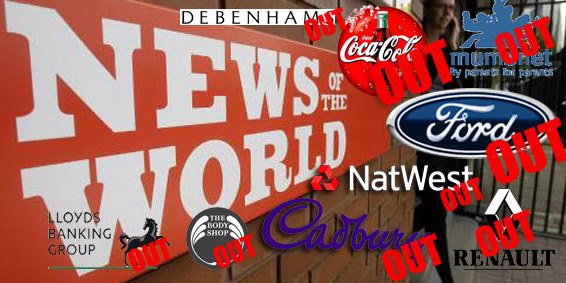
September 30, 2013, by ICCSR
Corporate Boycotts: no, I mean corporations doing the boycotting…
We are all too familiar with boycotts of corporations, principally by NGOs and trade unions. But there has been a recent flush of boycotts of corporations by corporations. Thus corporations appear to be behaving like NGOs by expressing their values – or the values which they think they should express – through the withdrawal of their custom.
The term boycott is associated with a Captain Boycott, the agent of an absentee landlord in C19th Ireland. He was boycotted by tenant farmers when he evicted other tenants unable to pay their rents at a time of poor harvests. This was followed by strikes of Boycott’s own farm labourers and even boycotts of his farm by local businesses.
The boycott has become the preserve of sections of society without conventional resources of power, like NGOs and trade unions. They seek to mobilise customers not to patronise targeted businesses (e.g. Shell petrol stations in Germany during the Brent Spa controversy), investors to abstain from investing in certain companies (e.g. of the colloquial ‘sin’ companies) and employees not to work at certain companies (e.g. those with anti-gay policies and practices).
Certainly businesses have participated in past boycotts, but these have usually been of countries and governments (e.g. against the British government in pre-revolution America, the apartheid South Africa, the Burmese military dictatorship). Moreover, companies have recently also withdrawn sponsorship from athletes associated with performance enhancing drugs (e.g. Lance Armstrong, Asafa Powell,Tyson Gay).
Following the revelations of phone hacking by employees numerous companies withdrew their advertising from the, now defunct, UK paper News of the World e.g. O2, Boots, Halifax, Sainsbury’s, Co-op, Npower, Specsavers, Ford, Vauxhall, Halifax, Virgin Holidays. The Co-operative Group explained: ‘These allegations have been met with revulsion by the vast majority of members who have contacted us.’
Lego recently ended its marketing partnership with The Sun newspaper. Lego denied that this was related to the public campaign and on-line petition of 12,000 parents to persuade Lego to withdraw its marketing partnership in protest against The Sun’s Page 3 topless girls feature. However, a Lego representative stated that: ‘we listen carefully every time a consumer shares a concern and thank you for bringing to our attention that this partnership has been something a lot of people were concerned about’. This looks reminiscent of girlcott by a company: a coinage recently used by a women protesting against sexist and degrading T-shirt slogans.
The most recent case is of banks and credit card companies threatening to withdraw their services from companies whose websites fail to stop children accessing pornography. Although this threat is being encouraged by the UK government, as yet this is purely a voluntary initiative by the companies concerned.
So what is going on? It appears that companies are not just evaluating business relationships on commercial grounds, narrowly defined. They are responding to or anticipating wider societal opinion, whether prompted by social media campaigns or government ‘nudge’. This seems to fit the concept of ‘corporate citizenship’ by which business behaves as a member of the society by being responsive to, and opting for solidarity with, prevalent, or even sectional, social opinion.
By Professor Jeremy Moon, Director of the ICCSR, Nottingham University Business School .
(see Corporations, Taxation and Citizenship for another perspective on corporate citizenship).
Image source: http://politicalscrapbook.net/2011/07/news-of-the-world-boycott-roundup-which-advertisers-are-out
No comments yet, fill out a comment to be the first

Leave a Reply